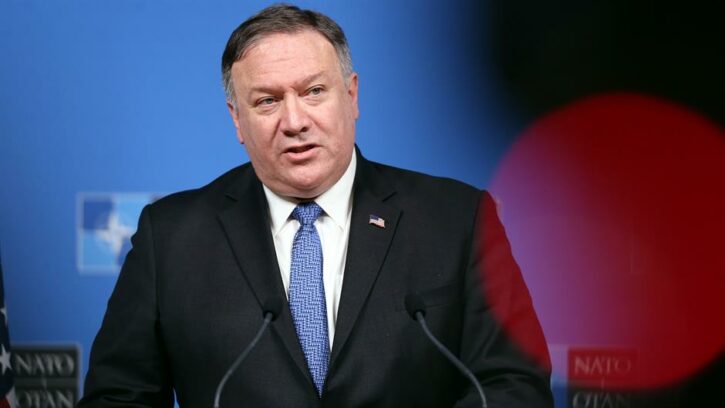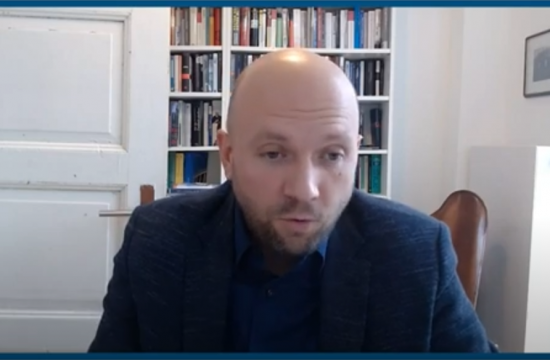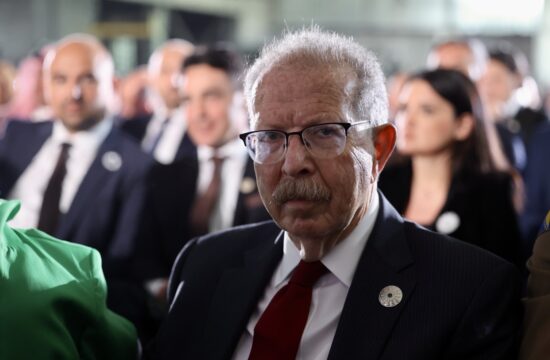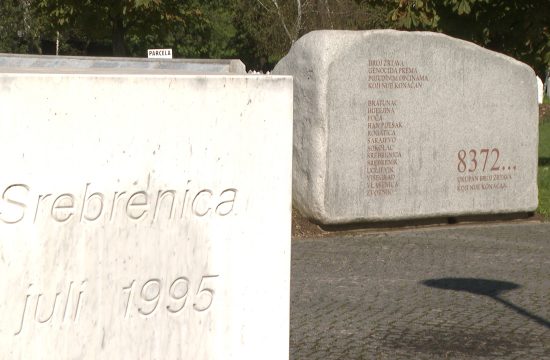
US Secretary of State Michael R. Pompeo urged Bosnia’s Presidency to adopt the annual national programme, an important step on Bosnia’s path toward NATO membership after NATO foreign ministers granted supported Bosnia’s reforms and efforts to activate the country’s Membership Action Plan in December.
“The creation and submission of the programme to Brussels will not predetermine Bosnia's future NATO membership, but will influence the transformation and modernisation of your Armed Forces,” Pompeo wrote to the three members of Bosnia's Presidency. “It will also improve the country's security and strengthen the reform process as part of Bosnia's aspirations to get the EU candidate status.”
He wrote that Bosnia's wish to join the Alliance was clearly stated through its foreign policy and that he understands the concerns within the Presidency that more intense cooperation with the NATO could affect the country's relations with its neighbours.
Even though Serbia is not a NATO member and has no intention to become one, Pompeo noted that Serbia has a significant level of cooperation with the Alliance, including joint exercises aimed at increasing the interoperability between its and NATO forces. There is no reason why Bosnia should not have such close cooperation with NATO as well, he wrote.
Considering that Bosnia is of strategic interest for regional stability, the US Secretary of State concluded that the his country appreciates and wants a higher degree of cooperation with Bosnia and that it is high time for the country to submit its annual national programme to the Alliance.
Bosnian Croat member of tripartite Presidency, Zeljko Komsic, said the letter should be seen as a further incentive and the US and NATO's help to Bosnia to reinforce its reform activities in all aspects of life.
“Bosnia and its institutions have earlier expressed their determination to continue the Euro-Atlantic integration process through relevant laws and strategies, and we will insist that the process continues,” Komsic said reacting to Pompeo's letter.
It is clear, he said, that Bosnia belongs to the family of European, democratic and pluralist states gathered around common values and interests expressed through EU and NATO institutions. “It is high time that we take our place within this family because Bosnia has no other alternative,” Komsic noted.
Sefik Dzaferovic, the Bosniak member of the Presidency also welcomed Pompeo's letter.
“The views expressed in the petter are compatible with Bosnia's main foreign policy goals which were confirmed by the Presidency's earlier decisions, the Law on Defence and the State Foreign Policy Strategy,” Dzaferovic said.
Speaking to N1, head of Bosnian mission to NATO, Almir Dzuvo, said that the US’ interest in Bosnia is not something that began recently, but that it lasts from the moment the Dayton Peace Agreement, which ended the 1992-1995 war in Bosnia, was signed. In that context, the US is interested in developing the Bosnian state and its institutions.
“For many years, Bosnia was a country in which NATO conducted a peace mission, in order to strengthen the state and its institutions, and Bosnia emerged as a partner of the NATO alliance and as such, it became a part of this Alliance,” Dzuvo said for N1.
Bosnian Armed Forces’ participation in missions such as the one in Afghanistan contributed to the strengthening of trust and showed that its Armed Forces and State institutions could be a reliable partner of NATO.
“The call to submit the annual national programme is the result of a long-standing with the Alliance. It is open and not predetermined,” Dzuvo said.
Asked about how important it is for Bosnia to use the current, positive momentum coming from NATO, he said that Bosnia should submit its annual national programme as soon as possible, for the sake of its and regional stability.




